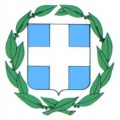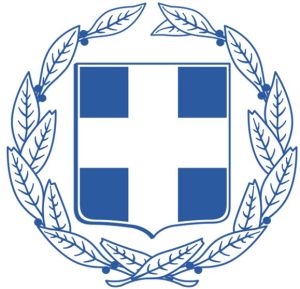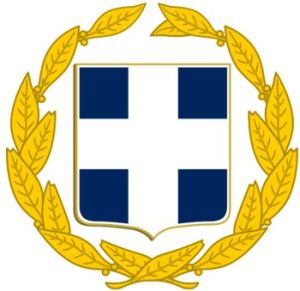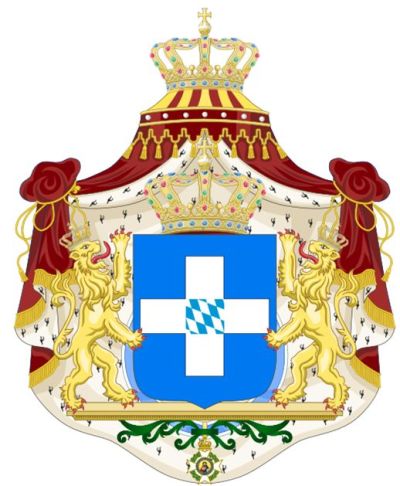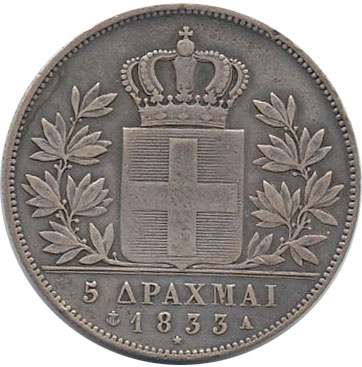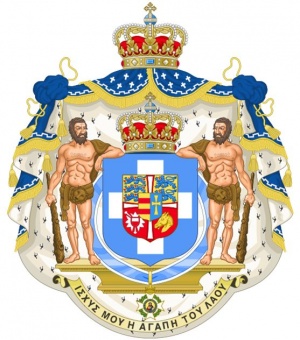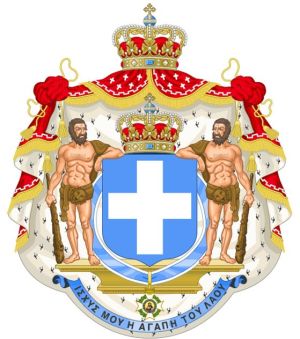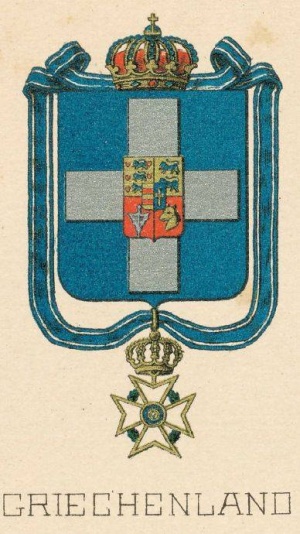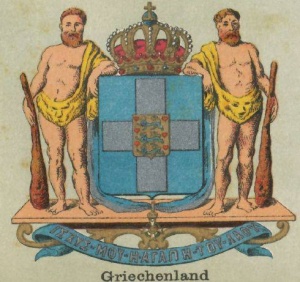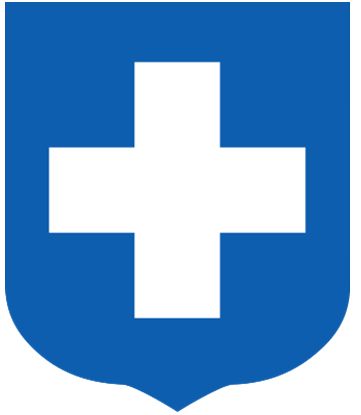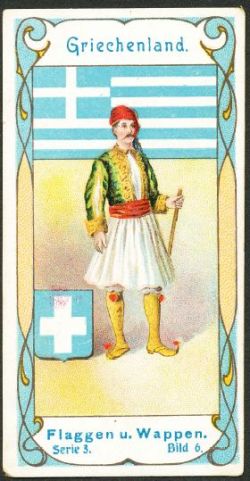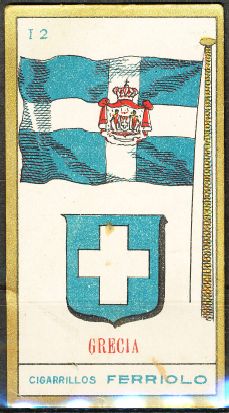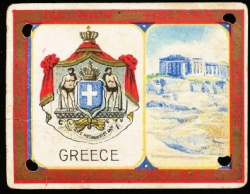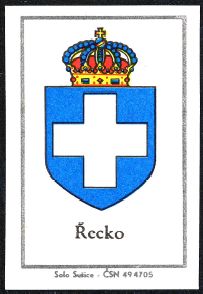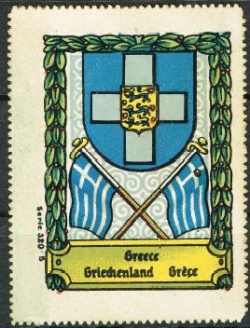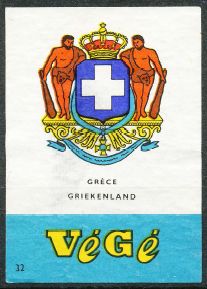National Arms of Greece: Difference between revisions
Knorrepoes (talk | contribs) |
Knorrepoes (talk | contribs) No edit summary |
||
| Line 1: | Line 1: | ||
{ | {{gr}} | ||
'''NATIONAL ARMS OF GREECE''' | '''NATIONAL ARMS OF GREECE''' | ||
Revision as of 11:08, 11 March 2018
Greece heraldry portal
This page is part of the Greece heraldry portal |
Heraldry of the World |
|
Civic heraldry:
|
Other heraldry: |
NATIONAL ARMS OF GREECE
Present arms
The National arms of Greece were adopted on June 7, 1975.
The arms show a white cross on blue, which has been used since 1833 in different variations. The arms are surrounded by a wreath of laurel leaves. The constitution describes no colours of the wreath, indicating a 'proper' colour, i.e. green. In practice the government uses a monochrome blue version for official use, and with golden leaves for military use.
| The arms for official use |
The arms for military use |
1832-1863
The first Greek coat of arms was introduced during the reign of King Otto. The arms were based on the arms of the Kingdom of Bavaria, as the King was related to the Bavarian Kings of the House of Wittelsbach.
The arms show the silver cross and the arms of the Wittelsbach dynasty as an escutcheon. The shield was supported by two crowned lions and surmounted by the royal crown.
These arms were abolished upon the king's exile exile in 1862.
As small arms, only the cross was used, for example on coins.
1864-1924
In 1864 a Danish prince was chosen as King George I. The new royal and national arms were based on the old design, but now with the arms of Schleswig-Holstein-Sonderburg-Glücksburg as an escutcheon. The lions were replaced by two male figures, alluding to the legendary Heracles. The chain of the Order of the Redeemer was also added. The motto of the dynasty (Ἰσχύς μου ἡ ἀγάπη τοῦ λαοῦ, People's love, my strength), was also introduced.
At the same time a simplified version for the government was introduced, without the royal escutcheon. Ever since Greece has been a monarchy there have been a Royal Coat of Arms and a National Coat of arms.
| The arms for official and royal use |
The arms for general use |
The arms as shown in heraldry books showing 'the arms of all countries in the world':
| The arms in 1888 (Lindeck) |
The arms around 1910 (Ruhl) |
| The arms around 1922 (Ruhl) |
1924-1935
When Greece became a republic in 1924, all external ornamentation was discarded and only the shield with the cross was used.
1935-1973
In 1935 the monarchy was restored, as were the old Royal and State arms from 1864. The Royal version is still used by the current Greek royal family - pretenders to the throne of Greece.
1973-1975
During these two years the military junta used a phoenix as a symbol, without any shield.
Use of the arms
The arms have been shown on a large number of collector's items from all over the world. Not always in the correct version or with the correct escutcheon.
| The arms on a German collector's card, 1930s |
The arms on an Uruguayan cigarette card, 1930s |
The arms on an American cigarette card, 1930s |
| The arms on a Czech matchbox label, 1960s |
The arms on an German collector's stamp, 1930s |
The arms on an Dutch matchbox label, 1960s |
Contact and Support
Partners:
Your logo here ?
Contact us
© since 1995, Heraldry of the World, Ralf Hartemink 
Index of the site
Literature: Most images and information obtained from Wikipedia
